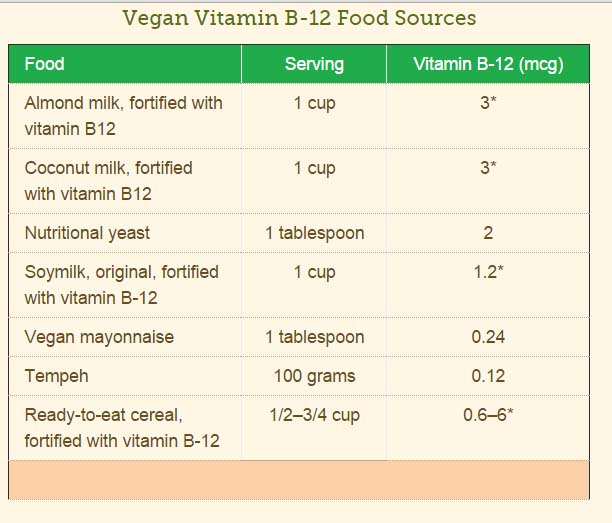How Much Do You Know about Liposomal Vitamin C?

Table of Contents
Have you ever heard of liposomal vitamin C? What is it and what benefits does it have to offer? Many of you might already be familiar with vitamin C and its benefits, both in supplement form and as part of your regular diet. This is probably the first vitamin you turn to every time you start feeling the signs of a cold because it is known as a powerful immune booster and antioxidant.
It is also not a secret that your diet is the only way to get vitamin C. But just because you are loading up on your vitamin C intake doesn’t necessarily mean that your body fully uses the amount in your cells.
It is where liposomal vitamin C enters the picture. Liposomal vitamin C is more bioavailable and absorbable in the body since the vitamin C is enclosed in the liposomes or the microscopic droplets with a lipid bilayer surrounding it. This is the same type of barrier as the cell membranes.
The liposome is the reason why vitamin C is fat-soluble rather than water-soluble, allowing it to be easily transported to the cells where this will do its job and put to good use.

Liposomal Vitamin C vs. Standard Vitamin C
Also called ascorbic acid, regular vitamin C is what can be found in many vitamin C supplements in the form of tablets, capsules, or powder. This specific type of vitamin is water-soluble, which means that it is absorbed in water.
Even though the human body already contains plenty of water, lipids or fat make up the structure of cells. As you might already know, water and oil or fat don’t mix well at all. These two always repel each other. It means that water-soluble vitamin C doesn’t get absorbed that well in the cells where this is needed the most.
The human body can only absorb extremely low standard vitamin C doses. When you take a higher dosage, the absorption rate will also be lower. At the typically suggested dosage of 1000mg, your body will end up absorbing less than half of the ingested amount.
Any excess is excreted mainly through urine. It means that it won’t do you good at all to take vitamin C orally in megadoses, not to mention that it might even lead to digestive upset.
On the other hand, liposomal vitamin C is still ascorbic acid. The only difference is that it is encased in liposomal form with a lipid bilayer surrounding it to facilitate easier cell access. It means that this is more bioavailable and absorbable in the body that is ready to be used when and as needed. When in supplement form, you will get the best out of liposomal formula instead of a water-soluble formula.
Liposomal Vitamin C Benefits
In essence, liposomal vitamin C offers the same benefits you can get from standard vitamin C. The only difference is that you will probably notice its results because of the higher absorption ability.
- Heart Health
The most essential antioxidant is vitamin C as it protects nutrient molecules such as lipids and proteins from oxidative damage and stress. In particular, for heart health, it can prevent LDL-protein oxidation that can help reduce atherosclerosis. This is also associated by several studies with improved endothelial function, arterial stiffness, and lipid profiles.
- Immune Support
Now more than ever, everyone needs a strong immune system, and its true champion is none other than vitamin C. Studies reveal that vitamin C lowered the instances of common colds by up to half in physically active people.
- Mood Boost
Vitamin C also synthesizes neurotransmitters such as norepinephrine and dopamine, which are the chemical signals responsible for regulating moods. Real liposomal vitamin C easily crosses the blood-brain barrier wherein it can be used right away for mood regulation and mental support. With insufficient vitamin C, experts discovered that it could lead to increased cognitive impairment and depressed mood.
- Skin Health
Vitamin C can also help the body with collagen production. Collagen is the structural glue holding humans together and is vital for cellular integrity. It helps keep toxins and pathogens out from the cell nucleus and cytoplasm where they are known to cause some real damage.

This is also responsible for helping skin maintain its elasticity, bounce, and smoothness. You might have heard of skincare enthusiasts and dermatologists suggesting the use of vitamin C serum for this very reason.
Are There Side Effects?
Taking high doses of standard vitamin C may lead to digestive upset. But with liposomal vitamin C, such side effects are much less likely because the body can quickly absorb and use it. However, you still need to follow the direction of your doctor or healthcare practitioner on the dose that best suits you.
How to Find Quality Liposomal Vitamin C Supplements
The market may be filled with different liposomal vitamin C supplements right now. But some of them are not really liposomal or don’t have the best liposomal formula.
Here are some tips to help you find the right supplement for your liposomal vitamin C needs:
- Inspect for purity without additives or fillers.
Ascorbic acid in itself is usually used as a preserving agent in other supplements and food products, which reduces the chances of finding extra junk in straight vitamin C ascorbic acid supplements. However, additives and fillers are often used to make supplements last longer on store shelves and more affordable.
Always check the labels when shopping for liposomal vitamin C supplements and watch out for any unwanted additives. The liposomal formula and ascorbic acid are the only things you need here.

- Buy supplements from a reliable company.
Once you have checked the formulation and ingredients, it is time to research the manufacturer. How committed is the company to quality testing and science-based research? Do they guarantee high-quality products with high-quality ingredients?
Does the company work with the best healthcare experts? Do they commit to catering to the health of the customers more than growing their bottom line? Be sure to raise these questions first before you buy any liposomal vitamin C supplement from a company to ensure that you will be using an effective product.
Read also article about gum disease: Gum disease, also known as periodontal disease, is a prevalent condition that impacts millions of individuals globally. Research indicates that nearly half of adults aged 30 and above experience gum disease. Unfortunately, its symptoms often go unnoticed until a dental examination is conducted during a visit to the dentist.










 Who is at Risk of Developing Anorexia and Other Eating Disorders?
Who is at Risk of Developing Anorexia and Other Eating Disorders?  Discover the Flavor Revolution with Lee Kum Kee Chili Crisp Oil
Discover the Flavor Revolution with Lee Kum Kee Chili Crisp Oil  Coconut Extract: The Secret Ingredient Revolutionizing Health and Wellness in 2024
Coconut Extract: The Secret Ingredient Revolutionizing Health and Wellness in 2024  Discover the MCT Oil Magic
Discover the MCT Oil Magic  Potential Consequences of Obsessive Compulsive Disorder
Potential Consequences of Obsessive Compulsive Disorder